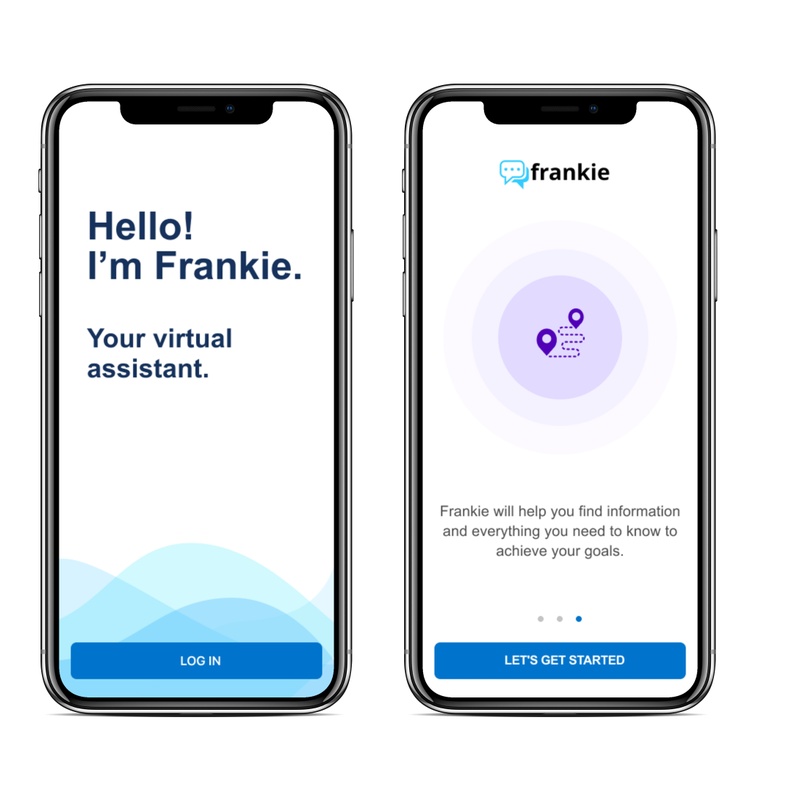The Top 6 Myths about Custom Voice Assistants, Debunked
Adriana Campoy and Sebastián Sassi
May 19, 2020

A little over ten years ago, the average consumer may have seen voice-controlled virtual assistants as crazy technology from the distant future. Today, thanks to Google Assistant, Apple's Siri, and Amazon's Alexa, voice assistants are part of everyday life for smart speaker and smartphone users. However, many of us don't actually know how voice assistants work or fully understand their potential, especially in a business context. In the same way that intelligent virtual assistants have revolutionized the way millions of users shop, access media, and organize their daily lives, custom voice assistants built for business use can transform daily operations, giving companies that adopt this technology a clear competitive advantage.
However, as with any change that requires some investment of time and resources, it's easy to be resistant to the idea of a voice assistant. We believe this is due to misconceptions about what voice assistants can do and the real benefits they can deliver to the companies that use them. In this post, we'll cover the top myths about custom voice assistants and lay out some of the ways companies can leverage this technology to stay at the forefront of their industries.
Myth #1: It's the same as Siri or Alexa.
When answering a question, voice assistants created for mainstream commercial use are limited to information that's stored on your phone or that it can find in an online search. A custom voice assistant built for professional purposes, on the other hand, can access company data that lives in multiple platforms, delivering specific information in one convenient place. A voice-controlled interface is a great option for teams that normally have to juggle different systems. A voice assistant minimizes the time team members spend looking for the information and analysis they need.
Myth #2: My privacy will be at risk.
There's a common misconception that voice assistants are constantly recording, but this is not the case. While they do "listen" for the wake word, this involves detecting a specific speech pattern that will activate the assistant; it does not record its surroundings at all times. (For more on how wake words work, check out our blog post on voice assistant basics.) Another concern might be that sensitive data is less secure if it can be accessed with a simple spoken question. However, additional security measures like voice recognition can be implemented to authenticate users and ensure privacy.
Myth #3: It won't understand people's names or the jargon we use in my industry.
One of the great advantages of a custom voice assistant is that having access to all relevant company systems allows it to understand specific names and vocabulary that a commercial voice assistant would struggle with. In addition, machine learning capabilities enable voice assistants to get even better at understanding and fulfilling your requests the more you use them.
Myth #4: It can only perform simple, one-step tasks.
Custom voice assistants are actually able to handle complex, multi-step items of work. Robotic process automation (RPA) technology enables voice assistants to complete a range of tasks from the beginning to the end of a workflow. In addition, voice assistants can track trends and anomalies in the data and provide strategic insights to help users optimize their performance.
Myth #5: I can only use it in a quiet environment.
A high-quality digital assistant not only filters out background noise, but can easily switch between text and voice mode for the user's convenience. It should also be able to handle context seamlessly by perceiving key aspects of the conditions in which someone uses the assistant. For example, a good voice assistant should be able to detect when the user is driving and automatically switch to voice-only mode.
Myth #6: It's not worth the investment.
It's important to stress here that custom voice assistants are not only a great tool for optimizing productivity by automating mundane tasks and speeding up information retrieval; the synthesis and insights they provide help users make smarter decisions based on real data. For example, a voice assistant created to help a sales representative while they drive to meetings with different customers might offer to share insights about a particular customer based on the user's location. It might also alert the user when a customer's ordering habits change or recommend a particular sales technique that was successful in the past. Voice assistants boost the effectiveness of a user's approach to their work in addition to increasing their efficiency.
An Opportunity for Innovation and Growth
Custom voice assistants have a lot to offer, and early adopters will benefit the most from this technology. At sophilabs, we're experts in building AI-driven voice assistants and natural language solutions. We have experience creating voice-controlled apps that users love because of all the ways it makes their day-to-day work easier. If you want to find out more about how an intelligent voice assistant can help your business, don't hesitate to get in touch with us!

Voice Assistants 101: A Look at How Conversational AI Works
In this article, we walk through the typical steps a voice assistant takes to fulfill a spoken command and some of the software components that make it possible.

How Spending a Day in the Life of a User Helped Us Build a Product that Users Love
Sebastián Sassi tagged along with one of our client's sales representatives to see what their typical workday is like so we could anticipate their daily challenges and offer streamlined solutions.
Photo by sophilabs.
Categorized under research & learning.We’d love to work with you.
We treat client projects as if they were our own, understanding the underlying needs and astonishing users with the results.